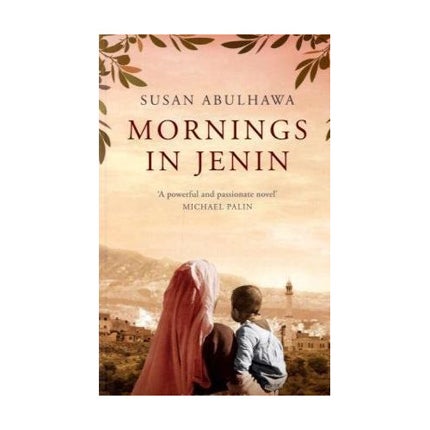Mornings in Jenin, By Susan Abulhawa
At the heart of a bitter struggle

Your support helps us to tell the story
From reproductive rights to climate change to Big Tech, The Independent is on the ground when the story is developing. Whether it's investigating the financials of Elon Musk's pro-Trump PAC or producing our latest documentary, 'The A Word', which shines a light on the American women fighting for reproductive rights, we know how important it is to parse out the facts from the messaging.
At such a critical moment in US history, we need reporters on the ground. Your donation allows us to keep sending journalists to speak to both sides of the story.
The Independent is trusted by Americans across the entire political spectrum. And unlike many other quality news outlets, we choose not to lock Americans out of our reporting and analysis with paywalls. We believe quality journalism should be available to everyone, paid for by those who can afford it.
Your support makes all the difference.It's almost 62 years since the "nakba" or cataclysm that saw the invasion of Palestine or, to put it another way, the founding of the state of Israel.
That makes post-occupation Palestine almost as old as India or Pakistan: both countries that have produced copious quantities of fiction since achieving independence. If it surprises that Mornings in Jenin is the first mainstream novel in English to explore life in post-1948 Palestine, it's worth remembering that the stability and distance literature often needs have been in short supply for Palestinians.
Susan Abulhawa's novel, first published in the US in 2006 but since reworked, follows the Abulheja family, Yehya and Basima and their two sons, in Ein Hod, a village in Palestine. The pastoral opening crams into 40 pages a cross-faith friendship, a love story (both brothers fall for Dalia, who marries the elder son, Hasan), a death, the Zionist invasion of the village, and the theft of one of Hasan and Dalia's sons, the infant Ismael, by an Israeli soldier. He gives the child to his wife, a Polish Holocaust survivor. Usefully for narrative purposes, the baby, renamed David, has a scar on his face "that would eventually lead him to his truth".
From these beginnings, which promise a Middle Eastern Catherine Cookson story, a fine novel emerges. Most of Mornings in Jenin is about Amal, Hasan's daughter, who grows up in the Palestinian refugee camp at Jenin, moves to boarding school in Jerusalem, and then goes to America on a scholarship. The everyday life of cramped conditions, poverty, restriction, and the fear of soldiers, guns, checkpoints and beatings, would have been enough to make the novel unforgettable, but Abulhawa's writing also shines, at best assured and unsentimental. Young Amal and her best friend, Huda, shelter in a cellar during the Six Day War, clutching the corpse of a baby cousin, but it's the loss of a doll and their secret playhouse in the bombing that hurts more. Friendship, adolescence, love: ordinary events, offset against extraordinary circumstances, make the story live.
Join our commenting forum
Join thought-provoking conversations, follow other Independent readers and see their replies
Comments